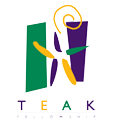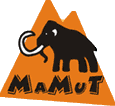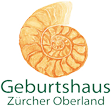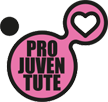Charitable Activities
Hardcastle focuses on charitable organizations that help underprivileged children in the areas of education, health and wellbeing. The charities should have a good reputation, transparency in their mission and operations, and minimal administrative expenses as a percentage of funds donated. Hardcastle looks for a relatively small number of well-run charities where our donations can have a meaningful impact on the organization.
In terms of geographic focus, 50% of the donation amount is targeted to charities with a global reach, and 50% is given to charities focused on benefiting the local communities where Hardcastle has offices.
Child’s Dream
In 2003, two Swiss men, Daniel Siegfried and Marc Jenni, founded Child's Dream. Child's Dream believes that "children are the future". Therefore the best way to break the cycle of poverty is to educate children, as education enables them to get better job opportunities. Read more
The overall goal of Child's Dream is to enable every child to attend school. But Child's Dream's work does not only focus on improving the lives of children and helping them to develop into responsible community members: for sustainable development it is important to help the whole community to build up the skills they need to shape their own future. After many years in the financial industry, Marc and Daniel abandoned their careers in order to help the underprivileged in our society. Without knowing what to expect, Child’s Dream was brought to life in October 2003 with the help of their close friends and family members. They both realised very soon that they had found a new meaning in life and were able to put all of their newly gained motivation and endless energy empowering underprivileged children, youth and communities in the Mekong Sub-Region to shape their own future.
The overall goal of Child's Dream is to enable every child to attend school. But Child's Dream's work does not only focus on improving the lives of children and helping them to develop into responsible community members: for sustainable development it is important to help the whole community to build up the skills they need to shape their own future. After many years in the financial industry, Marc and Daniel abandoned their careers in order to help the underprivileged in our society. Without knowing what to expect, Child’s Dream was brought to life in October 2003 with the help of their close friends and family members. They both realised very soon that they had found a new meaning in life and were able to put all of their newly gained motivation and endless energy empowering underprivileged children, youth and communities in the Mekong Sub-Region to shape their own future.

Accion
Established in 1961 and a leader in microfinance since 1973, ACCION has more than 45 years of experience in the field of international economic development. Read more
Their mission is to give people the tools they need to work their way out of poverty. By providing microloans, business training and other financial services to poor families, ACCION help people work their own way up the economic ladder with dignity and pride. With just a little capital, people can grow their own business and earn enough to afford basics like running water, food and schooling for their children.
Microfinance works because it builds on the one asset found even in the poorest communities around the world: the power and determination of the human spirit.
Their mission is to give people the tools they need to work their way out of poverty. By providing microloans, business training and other financial services to poor families, ACCION help people work their own way up the economic ladder with dignity and pride. With just a little capital, people can grow their own business and earn enough to afford basics like running water, food and schooling for their children.
Microfinance works because it builds on the one asset found even in the poorest communities around the world: the power and determination of the human spirit.

Practical Action
Since 1966, Practical Action has been working alongside communities to find practical solutions to the poverty they face. Practical Action believes that the right idea, however small, can change lives. It can create jobs, improve health and livelihoods, and help people have better lives. Read more
They have been working closely with some of the world’s poorest people to develop the skills and technology that will enable them to build a better future.
Their work is focused on four key areas: reducing vulnerability, making markets work for the poor, improving access to services and new technologies.
They have been working closely with some of the world’s poorest people to develop the skills and technology that will enable them to build a better future.
Their work is focused on four key areas: reducing vulnerability, making markets work for the poor, improving access to services and new technologies.

Heifer International
Heifer’s mission is to work with communities to end hunger and poverty and to care for the earth.
The simple idea of giving families a source of food rather than short-term relief caught on and has continued for over 65 years, since 1944. Read more
Their strategy is to “pass on the gift”. As people share their animals’ offspring with others, along with their knowledge, resources and skills, an expanding network of hope, dignity and self-reliance is created that reaches around the globe.
The simple idea of giving families a source of food rather than short-term relief caught on and has continued for over 65 years, since 1944. Read more
Their strategy is to “pass on the gift”. As people share their animals’ offspring with others, along with their knowledge, resources and skills, an expanding network of hope, dignity and self-reliance is created that reaches around the globe.

One Globe Economy
One Global Economy Corporation is a global non-profit organization that uses innovative approaches to deliver the power of technology and information to low-income people, giving them valuable tools for building better lives. Read more
One Global Economy Corporation brings broadband into low-income homes, employs youth to train community members to use technology effectively, and provides public-purpose media properties that offer information on education, jobs, healthcare and other important issues.
Their mission is to maximize the potential of technology to help underprivileged people improve their lives and enter the economic mainstream.
One Global Economy Corporation brings broadband into low-income homes, employs youth to train community members to use technology effectively, and provides public-purpose media properties that offer information on education, jobs, healthcare and other important issues.
Their mission is to maximize the potential of technology to help underprivileged people improve their lives and enter the economic mainstream.

St. Jude Children’s Research Hospital
The mission of St. Jude Children’s Research Hospital is to advance cures, and means of prevention, for pediatric diseases through research and treatment. Consistent with the vision of founder Danny Thomas back in 1962, no child is denied treatment based on race, religion or a family’s ability to pay. Read more
The St. Jude International Outreach Program strives to meet four main goals:
The St. Jude International Outreach Program strives to meet four main goals:
- To increase the survival rates of children with cancer and other diseases
- To continue to share knowledge and expertise worldwide
- To provide high quality nursing to all patients and families at our partner sites
- To integrate St. Jude research into our international partner sites

Teak Fellowship
Established in 1998, The TEAK Fellowship helps talented students from low-income families in New York gain admission to and succeed at top high schools and colleges. They provide leadership training, exposure to the arts and outdoors, mentoring, career experience, and assistance with high school and college applications. Read more
TEAK stands out for its commitment to diversity and choice. Admission is based on academic achievement, leadership and personal potential, and financial need.
TEAK admits high achieving, low-income grade 7 boys and girls from all five boroughs of New York City and works with them through the summer after they graduate from high school. Gaining admission to a top high school, having support during high school, and being exposed to a strong group of peers, advisors, and mentors will give talented students who lack the economic resources more equal footing from which to compete and succeed.
TEAK stands out for its commitment to diversity and choice. Admission is based on academic achievement, leadership and personal potential, and financial need.
TEAK admits high achieving, low-income grade 7 boys and girls from all five boroughs of New York City and works with them through the summer after they graduate from high school. Gaining admission to a top high school, having support during high school, and being exposed to a strong group of peers, advisors, and mentors will give talented students who lack the economic resources more equal footing from which to compete and succeed.

East Harlem Tutorial Program
Since 1958, the East Harlem Tutorial Program has been working with children from early childhood through adulthood to ensure that they have the resources needed to access opportunities for academic, social and career advancement. Read more
Since the early 1990s, as the East Harlem Tutorial Program has strengthened its programs and services and its annual budget was increased, the number of enrollees between the ages of 5 and 21 has risen from 50 to over 800. Their commitment to serving the East Harlem community has been reinforced by continued growth and expansion, and their programs prove that participants can achieve their educational goals while developing self- expression and a passion for learning.
Each week, more than 800 young people and over 270 volunteers participate in programs at multiple sites in East Harlem.
Since the early 1990s, as the East Harlem Tutorial Program has strengthened its programs and services and its annual budget was increased, the number of enrollees between the ages of 5 and 21 has risen from 50 to over 800. Their commitment to serving the East Harlem community has been reinforced by continued growth and expansion, and their programs prove that participants can achieve their educational goals while developing self- expression and a passion for learning.
Each week, more than 800 young people and over 270 volunteers participate in programs at multiple sites in East Harlem.

De La Salle Academy
Founded in 1984 by Brother Brian Carty, De La Salle Academy is a private, independent, non-sectarian middle school located in Manhattan. The school’s student body is made up of youngsters from New York City. Read more
Providing a full educational program and chartered by the Regents of the State of New York, it is the only independent school in New York City for academically talented, economically disadvantaged boys and girls in grades six through eight.
Since the beginning, De La Salle has provided and continues to provide gifted, underprivileged adolescents the nurturing and academically challenging environment they need to ensure bright futures. Students take with them the ideals and values taught at the academy through high school and beyond.
24% of students are supported solely by welfare or social security payments. 42% of students are from families with incomes of less than USD 25,000.00. 64% of students are from families with incomes of USD 35,000.00 or less. 52% of students are from families with an average of five or more members. 39% of students are being raised in single-parent homes.
Each year, De La Salle must raise over 80% of the school’s annual budget from sources other than tuition.
Providing a full educational program and chartered by the Regents of the State of New York, it is the only independent school in New York City for academically talented, economically disadvantaged boys and girls in grades six through eight.
Since the beginning, De La Salle has provided and continues to provide gifted, underprivileged adolescents the nurturing and academically challenging environment they need to ensure bright futures. Students take with them the ideals and values taught at the academy through high school and beyond.
24% of students are supported solely by welfare or social security payments. 42% of students are from families with incomes of less than USD 25,000.00. 64% of students are from families with incomes of USD 35,000.00 or less. 52% of students are from families with an average of five or more members. 39% of students are being raised in single-parent homes.
Each year, De La Salle must raise over 80% of the school’s annual budget from sources other than tuition.

Csanyi Foundation
The Csanyi foundation is a non-profit organization in Hungary that supports gifted, socially disadvantaged children on a long-term basis. Their aim is to support the work of civil organizations and individuals engaged in child protection, early childhood and education services. Read more
Besides their talent development program, which focuses on education, the Foundation also works with groups to fight child hunger and supports foster families raising sick children.
The founder of the Foundation, Sandor Csanyi, is a successful business man and one of the wealthiest men in Hungary.
Besides their talent development program, which focuses on education, the Foundation also works with groups to fight child hunger and supports foster families raising sick children.
The founder of the Foundation, Sandor Csanyi, is a successful business man and one of the wealthiest men in Hungary.

Fazekas Mihaly Foundation
The Fazekas Mihaly Educational, Cultural and Sports Foundation is an independent non- profit organization whose purpose is to raise funds for the benefit of the students and teachers at the Fazekas Mihaly Secondary Grammar School. Read more
The school in Budapest, established in 1911, consists of two parts providing primary and secondary education. Their goal is to provide a suitable learning environment for students, from all over Hungary. The school is very well-known for its work in teaching mathematics, and the students’ achievements are acknowledged worldwide.
Most schools in Hungary are on a very tight budget, and the Fazekas Mihaly Secondary Grammar School is no exception. Besides financial resources provided by the State, the school relies heavily on other resources, such as the Foundation. The Foundation has helped to develop the school library, has given annual grants and has provided expensive school supplies and course books for students in need of financial assistance. It has also contributed to school camps, trips and various extracurricular activities. More recently, the Foundation helped to create a talent center which provides special care to children with social difficulties from other schools in Hungary.
The school in Budapest, established in 1911, consists of two parts providing primary and secondary education. Their goal is to provide a suitable learning environment for students, from all over Hungary. The school is very well-known for its work in teaching mathematics, and the students’ achievements are acknowledged worldwide.
Most schools in Hungary are on a very tight budget, and the Fazekas Mihaly Secondary Grammar School is no exception. Besides financial resources provided by the State, the school relies heavily on other resources, such as the Foundation. The Foundation has helped to develop the school library, has given annual grants and has provided expensive school supplies and course books for students in need of financial assistance. It has also contributed to school camps, trips and various extracurricular activities. More recently, the Foundation helped to create a talent center which provides special care to children with social difficulties from other schools in Hungary.

MaMuT Camp
MaMuT is a summer camp where talented students between the ages of 10 and 15 are invited to take part in mathematical programs. Then name MaMuT is a Hungarian abbreviation for Matematikai Mulatsagok Tabora, which in English translates to Camp of Mathematical Amusements. Read more
Established in 1992, the camp makes it possible for children to meet others with similar abilities and interests, and to combine high quality mathematical programs with the entertainment possibilities of a summer camp. The camp is free of charge and enables talented kids to participate, regardless of the financial situation of their parents.
The mathematical programs have one important feature in common: they are about exploring mathematics, and not about learning mathematical facts. The most important teacher of the camp representing this method is Lajos Posa. Many of the teachers and members of the youth staff learned the method and mentality of teaching mathematics from him. The camp does not have a stable financial background and relies heavily on the help and goodwill of sponsors every year.
Established in 1992, the camp makes it possible for children to meet others with similar abilities and interests, and to combine high quality mathematical programs with the entertainment possibilities of a summer camp. The camp is free of charge and enables talented kids to participate, regardless of the financial situation of their parents.
The mathematical programs have one important feature in common: they are about exploring mathematics, and not about learning mathematical facts. The most important teacher of the camp representing this method is Lajos Posa. Many of the teachers and members of the youth staff learned the method and mentality of teaching mathematics from him. The camp does not have a stable financial background and relies heavily on the help and goodwill of sponsors every year.

Geburtshaus Zürcher Oberland
Situated in Wald and boosting 16 years of success, the birthing house emphasizes the importance of natural and undisturbed childbirth.

Pro Juventute
Established in 1912 with its headquarters in Zürich, Pro Juventute is a non-profit organization that supports the needs and rights of children and young people in Switzerland in the areas of education, health and wellbeing. Read more
Together with private and government-run organizations, their main goals are to help children in emergency situations, offer social services and support children in their personal development.
Together with private and government-run organizations, their main goals are to help children in emergency situations, offer social services and support children in their personal development.

The Pestalozzi Children’s Foundation
The Pestalozzi Children's Village was created in response to the horrors of World War II. War orphans from all over Europe came to Trogen in the idyllic canton Appenzell to learn how to live together peacefully. Read more
Their overriding goal is peaceful cohabitation by way of international understanding, and education in the spirit of Johann Heinrich Pestalozzi is their key to achieve it.
The Foundation’s initial vision was maintained, but their working methods have changed over time. Since 1982, the Pestalozzi Children's Foundation has been working in development cooperation as a Swiss non-profit organisation focusing on education. Today, the Pestalozzi Children's Foundation operates in two programme domains: Intercultural Exchange and Development Cooperation.
Intercultural exchange projects for Swiss school classes and children and adolescents from East European countries are implemented in the Children's Village. Projects in developing countries support children and young people to enjoy their right to good quality education and a promising future.
Their overriding goal is peaceful cohabitation by way of international understanding, and education in the spirit of Johann Heinrich Pestalozzi is their key to achieve it.
The Foundation’s initial vision was maintained, but their working methods have changed over time. Since 1982, the Pestalozzi Children's Foundation has been working in development cooperation as a Swiss non-profit organisation focusing on education. Today, the Pestalozzi Children's Foundation operates in two programme domains: Intercultural Exchange and Development Cooperation.
Intercultural exchange projects for Swiss school classes and children and adolescents from East European countries are implemented in the Children's Village. Projects in developing countries support children and young people to enjoy their right to good quality education and a promising future.
